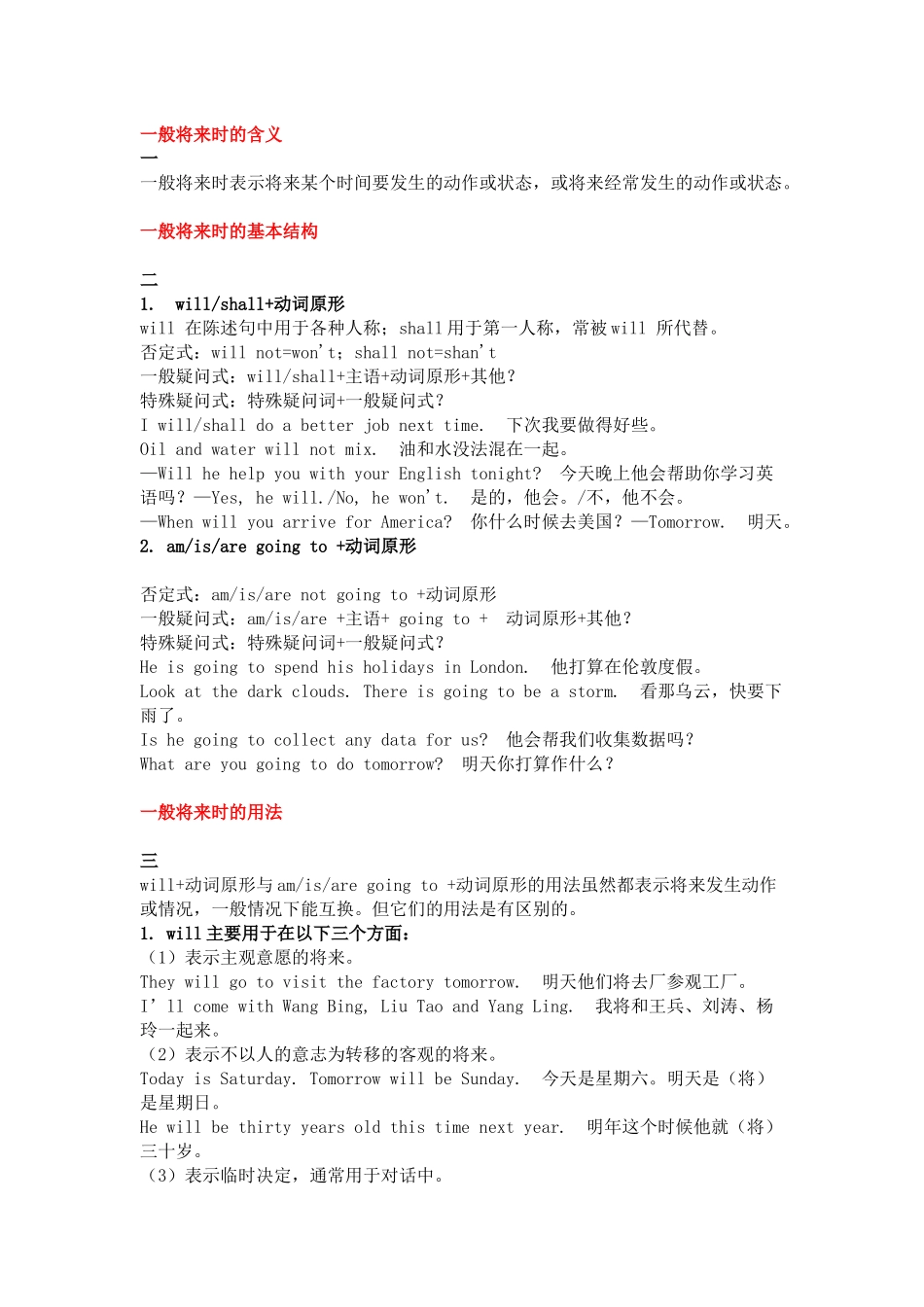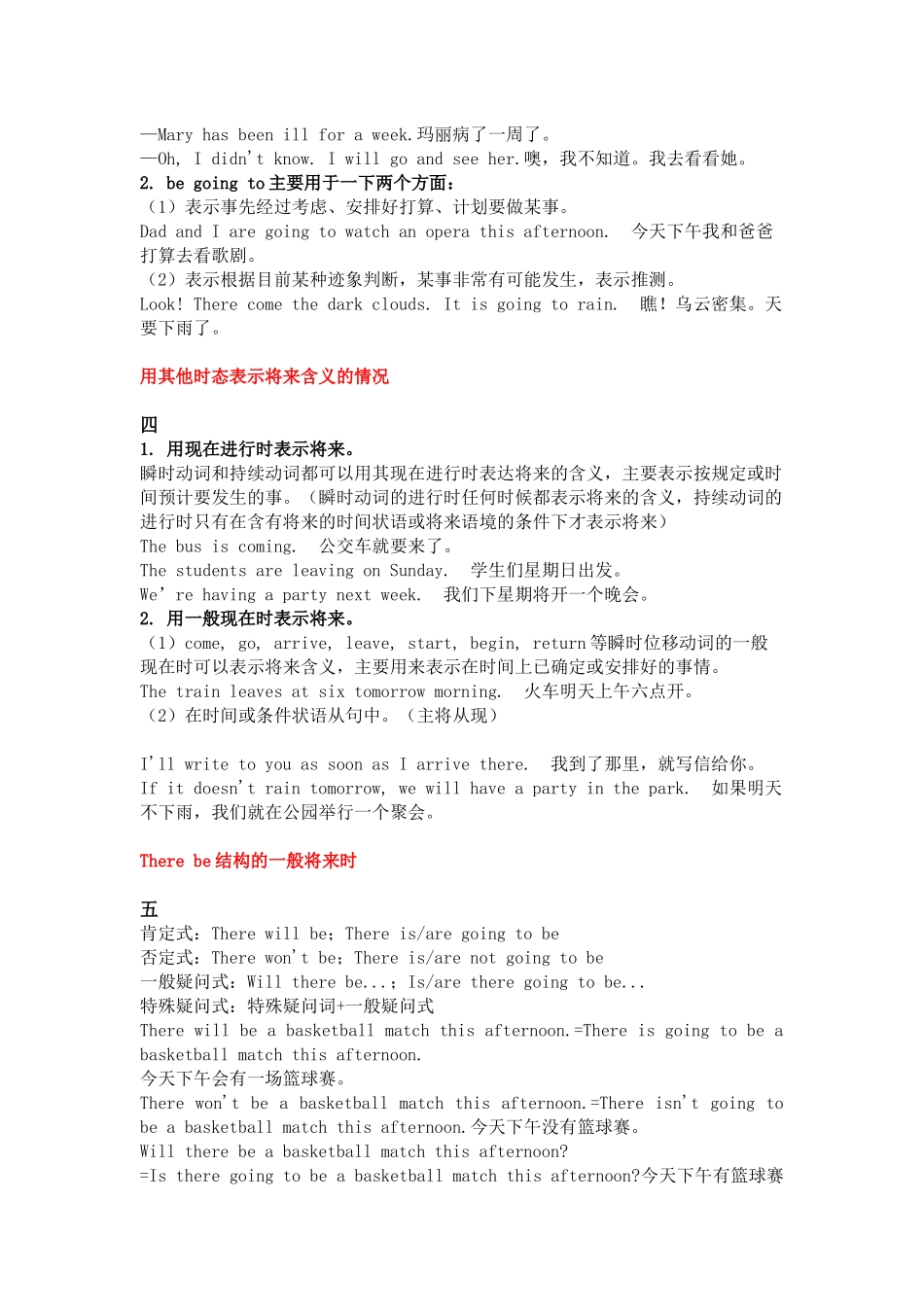一般将来时的含义一一般将来时表示将来某个时间要发生的动作或状态,或将来经常发生的动作或状态。一般将来时的基本结构二1. will/shall+动词原形 will 在陈述句中用于各种人称;shall 用于第一人称,常被 will 所代替。否定式:will not=won't;shall not=shan't一般疑问式:will/shall+主语+动词原形+其他?特殊疑问式:特殊疑问词+一般疑问式?I will/shall do a better job next time. 下次我要做得好些。Oil and water will not mix. 油和水没法混在一起。 —Will he help you with your English tonight? 今天晚上他会帮助你学习英语吗?—Yes, he will./No, he won't. 是的,他会。/不,他不会。—When will you arrive for America? 你什么时候去美国?—Tomorrow. 明天。2. am/is/are going to +动词原形否定式:am/is/are not going to +动词原形一般疑问式:am/is/are +主语+ going to + 动词原形+其他?特殊疑问式:特殊疑问词+一般疑问式?He is going to spend his holidays in London. 他打算在伦敦度假。Look at the dark clouds. There is going to be a storm. 看那乌云,快要下雨了。Is he going to collect any data for us? 他会帮我们收集数据吗?What are you going to do tomorrow? 明天你打算作什么?一般将来时的用法三will+动词原形与 am/is/are going to +动词原形的用法虽然都表示将来发生动作或情况,一般情况下能互换。但它们的用法是有区别的。1. will 主要用于在以下三个方面:(1)表示主观意愿的将来。They will go to visit the factory tomorrow. 明天他们将去厂参观工厂。I’ll come with Wang Bing, Liu Tao and Yang Ling. 我将和王兵、刘涛、杨玲一起来。(2)表示不以人的意志为转移的客观的将来。Today is Saturday. Tomorrow will be Sunday. 今天是星期六。明天是(将)是星期日。He will be thirty years old this time next year. 明年这个时候他就(将)三十岁。(3)表示临时决定,通常用于对话中。—Mary has been ill for a week.玛丽病了一周了。—Oh, I didn't know. I will go and see her.噢,我不知道。我去看看她。2. be going to 主要用于一下两个方面:(1)表示事先经过考虑、安排好打算、计划要做某事。Dad and I a...

